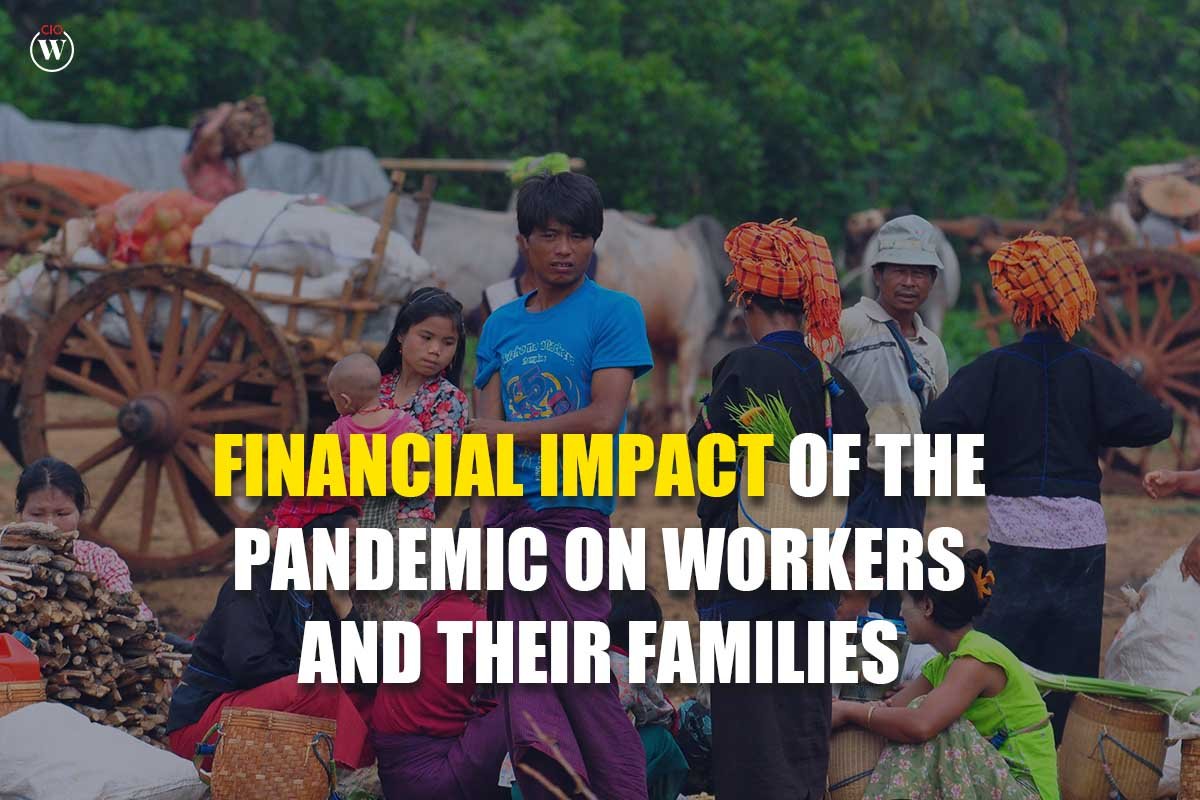A recent poll conducted by the AARP found that a significant number of working individuals now report that their current Financial Impact of the Pandemic is worse than it was one year ago.
In the survey, working adults were asked about the state of their personal finances (including debt, emergency savings, and retirement savings) over the course of the previous year, how they anticipate their personal finances will change over the course of the subsequent 12 months, as well as their financial goals.
As a result of the COVID-19 pandemic, a large number of employees, particularly those in industries that offer services to customers in person, were laid off or faced reduced hours beginning in early 2020. After a number of unproductive months of job seeking, several people finally gave up looking for work, which contributed to the steep rise in unemployment rates.

Those employees who were older, those workers who were Hispanic, those workers who were Black, and women were particularly badly impacted. Although many workers were fortunate enough to have jobs that allowed them to work from home, many of those who lost their jobs have endured — or are still enduring — especially long periods of unemployment that will likely have long-lasting effects on their financial security.
Although many workers were fortunate enough to have jobs that allowed them to work from home, many who lost their jobs have endured — or are still enduring — especially
Key Findings of Financial Impact of the Pandemic
Some people have been far more negative Financial Impact of the Pandemic by epidemic than others. Despite the fact that 43% of respondents said that their overall financial status is the same as it was before the pandemic, 30% of respondents classified their situation as being worse now, and 27% reported that it is better. Respondents of Hispanic origin, those with lower incomes, and women were more likely than their counterparts to believe that they are in a worse position now than they were twelve months ago.
The majority of respondents listed the loss of a job and/or being forced to take unpaid leave as the primary reasons why they believe their financial status has deteriorated. Job loss is cited as a “significant” contributor by fifty percent (50%) of respondents who reported a deterioration in their financial condition “rationale
The large majority of those who indicated that their overall Financial Impact of the Pandemic is worse today also claimed that their capacity to save for retirement (73%) and emergencies (72%), and more than half of them (52%) said that their ability to manage their debt is worse.

The demands of dealing with present financial matters, such as making payments on debt and paying for day-to-day expenditures, were cited by adults as being among the most significant impediments to saving for the future.
The top two obstacles that prevent people from putting away more money for retirement are a lack of funds (55%) and payments on debt (44%).
During the COVID-19 epidemic, almost one in four people (23%) either took an early withdrawal from their retirement funds or stopped contributing to it completely, putting their ability to retire comfortably in jeopardy.
The most prevalent types of Financial Impact of the Pandemic that working people anticipate facing during the next year are debt (50%) and spending (44%), followed closely by retirement savings (44%) as a close third. 75% of those who anticipate working on their finances during the next 12 months anticipate reaching out for financial information or assistance. Among these individuals, 28% anticipate contacting financial experts, and 26% anticipate talking to friends and family members.
The majority of respondents (52%) feel that their current financial status will be improved within the next year, while the remaining percentage (35%) anticipate that it will stay the same, and just a tiny percentage (13%) anticipate that it would get worse. Workers of African-American and Hispanic descent, younger employees, and those with lower earnings are most likely to anticipate an improvement in their overall condition.
The most popular “main reasons for the Financial Impact of the Pandemic” given by respondents who believe their condition will become better in the next year are an improved income from employment (cited by 38% of respondents), a new job (35% of respondents), and a reduction in debt (31% of respondents).”
The attitudes that people have towards retirement shed light on a considerable disparity between people’s retirement ambitions and the anticipated reality of retirement. About eight out of ten employees believe that having financial stability in retirement (83%) and ensuring that they are not a burden on others (76%), are two of the most important things in their lives. Unfortunately, less than four in ten people believe they have a very good chance of really achieving the usual retirement objectives they have set for themselves.
Almost nine out of ten working persons indicate support for the introduction of workplace programs to assist employees to build their emergency cushions. These programs would be comparable to company retirement savings programs, which help workers save for retirement.
These results of the Financial Impact of the Pandemic are based on a survey of persons aged 25 and over that was performed between the 13th of January and the 8th of February 2021 with the purpose of evaluating the respondents’ financial experiences during the first 12 months of the pandemic.

Oversamples of Hispanic workers and Black employees were included in the sample of 5,430 persons who are now working, searching for employment, or who have worked or searched for work in the last 12 months.
The AmeriSpeak® Panel from NORC was used to gather data for the general sample. This panel is a probability-based panel that was supposed to be representative of the household population in the United States. Respondents from the Lucid nonprobability online opt-in panel were recruited to reach 1,911 completes overall for African American/Black respondents and 1,991 completes overall for respondents of Hispanic origin. This was done in order to complete the oversamples.
Also read: 8 Financial Tips for Young Adults









